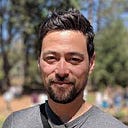

Discover more from Social Studies
Just a couple months before the outbreak of SARS-CoV-2 in China, a tabletop exercise took place in New York called Event 201. It was a discussion convened by the World Economic Forum and the Bill and Melinda Gates Foundation to game out how the world’s governments, industries and transnational organizations could effectively respond to a global pandemic. The whole conversation is up on YouTube for anyone to watch.
Event 201 brought together a collection of international big shots, or at least people who worked for big shot organizations. Someone was there from the Gates Foundation, naturally, and there were representatives from the UN, the WHO, Marriott, Johnson & Johnson, some Australian bank, the Chinese government, Edelman PR (which is disturbing), and other groups. The conversation was as technocratic as it gets: specific, purposeful, non-ideological, unreflective, bloodless, and superficial. These were agents of various Masters of the Universe practicing how to save the world from the apocalypse, and it had all the adrenaline of a college faculty committee meeting.
Contrast that meeting with another panel discussion, this one convened by the Drug Policy Alliance and held over Zoom last May. Entitled “Drug War Dragnet: Surveillance, Criminalization and Freedom from Drug War Targeting,” this presentation was all that Event 201 was not: ideologically and morally charged, histrionic, impractical, and academic in the worst sense of the word. Participants in the discussion took turns identifying deep, structural problems of racial and economic injustice but barely even pretended to try to imagine solutions to them, probably in part because they had no real power to do anything about them in the first place, and also because in the worlds of activism and academia (which are increasingly the same world), you get points for pointing to problems, not for fixing them.
As different as these two discussions were, they have come to inhabit the same intellectual space on the political left. Take the Bay Area, where I’m located and where I do most of my reporting. Over the last few years, San Francisco has confronted the addiction crisis and the Covid emergency simultaneously, but has responded to each in radically different ways. In the case of the former, until quite recently, the response has been essentially a libertarian one, fairly well aligned with what groups like the Drug Policy Alliance advocate for. San Francisco under former DA Chesa Boudin effectively decriminalized public drug use, open drug dealing, and property crime. Yet at the same time, in its approach to Covid, the city instituted some of the most restrictive lockdown, masking and vaccine rules in the country.
That weird ideological amalgam is not unique to San Francisco. The major funders of Event 201 and the Drug Policy Alliance are, respectively, Bill Gates and George Soros. Bill Gates is a towering figure among technocratic liberals and an arch villain in right-wing conspiracy theories. Soros has long been the benefactor of America’s professional radical left and is even more reviled than Gates on the right.
Those two factions — technocratic liberals and the radical left — were once distinct, mutually hostile camps. But over the course of Covid, they converged. In Los Angeles last year, Antifa street fighters demonstrated in favor of vaccine mandates and stabbed an anti-mandate protester. During the summer of 2020, an open letter signed by 1,200 health care professionals encouraged Americans to violate stay-at-home orders to participate in Black Lives Matter street protests against the police. With no apparent cognitive dissonance, liberals and leftists called to dismantle law enforcement while also demanding strict enforcement of Covid-related social controls.
I’ve written before, as have many others, about the increasingly religious character of the political left, which has also come to characterize liberal fealty to the public health technocracy. Much has been said about the martyrs, the prophets, the evangelism, the Apocalypse, and the Original Sin. But religion is more than just dogma and faith: a church also needs a flock.
In Max Weber’s formulation of the development of religion, you have, in its most elementary stage, magicians, which is to say, shamans who barter the service of accessing and manipulating supernatural forces for the benefit of customers in a transactional exchange. Then comes the emergence of priests, who condemn the magicians as, essentially, con artists. The priests claim that it is they, not the magicians, who have a specialized understanding of the supernatural world. This monopoly on esoteric knowledge forms the basis of the priesthood’s status and social power. In early civilizations, the priests shared with warrior kings the privileges and responsibilities of governing, by dint of their unique ability to interpret divine will.
This cozy arrangement is upended by the prophet, who, through the power of charisma, amasses a personal following. The prophet is something of a democratizing force. He condemns the priests as a bunch of usurpers and pretenders, claiming for themselves a knowledge of divine will which rightly belongs to the people as a whole. The prophet distills the esoteric teachings of the priests into a set of simple moral slogans accessible to all, thereby undermining the priesthood’s monopoly on both ethical wisdom and the prerogatives of government.
Since the prophet’s power is vested in his charisma, however, that power dies along with him. After his death, his followers go about the work of recreating the charisma of the prophet through the institutions they erect to continue to spread his message. They build awe-inspiring temples, clothe themselves in ostentatious costumes, and commission grand works of art. Through this activity, the church emerges. With it comes a new priesthood which busies itself contriving an arcane set of divinely ordained interpretations of the simple moral message of the prophet, resurrecting the esoterica that the prophet had rejected in the first place, and the social power that comes with it (this perceived betrayal of Jesus’s will by the Catholic church was the basis of the Reformation).
And then there are the pastors. While the priests, whose power comes from their aloof transcendence of the mundane world, cloister themselves in monasteries, the pastors tend to the everyday needs of the church’s congregants. Trained in the esoteric knowledge of the priests but immersed in the daily lives of the people, the pastors derive their social power both from the legitimacy bestowed upon them by the church and also directly through their leadership over the flock. In Christianity, the pastors follow the example of Jesus, who dined with tax collectors, cleansed a leper and allowed a prostitute to wash his feet.
In San Francisco, the population of homeless drug addicts serves the role for non-profit direct service providers that the sinners and outcasts did for Jesus and those who followed his example. Saviorism has long played a central role in the political culture of the left, which, as a product of the Enlightenment, has from its inception borne the heavy imprint of Judeo-Christian mythology. Marx’s teleological history cast the proletarian class as a collective Messiah. Lenin co-opted that messianic role in himself as an individual, as did revolutionaries the world over, from Castro to Mao. These world historical figures were the political equivalents of the great prophets, and, like the prophets, their charismatic power was buried with their corpses. And also as with the prophets, their disciples carried their message forth after their deaths by institutionalizing their charisma in the political equivalent of the church: the revolutionary political party. They struck awe in their followers with sculptures, banners, uniforms and military parades. They created their own political priestly caste in the form of the party apparatchiks.
But a church also needs pastors, and therein lies a role for the rank-and-file activist. While only a few can be great revolutionaries, almost anybody can be a shepherd. Tending to the homeless and drug addicted, a budding young leftist may not change the world, but he can be a savior to the sinners and outcasts available to him. He can tell himself that the flock needs him — without him, they would be lost to the streets, just a few more anonymous fatal overdoses in a rising tide of death. But really, it is he who needs the sheep. Without them, his life is without a grand purpose. Without them, politically speaking, he is nothing.
This is where libertarianism finds its purchase among the radical left. Drug enforcement, tent camp clearances, and abstinence-based recovery: these are all existential threats to the persistence of the flock as such, and thus to the role and status of the secular pastor. They must be opposed.
This quasi-religious drive on the left sits awkwardly with the technocratic style of governance that liberals in America have adopted, but the two have coalesced. In fact, the technocratic style of public health administrators during the pandemic is, too, part of the left’s religious pedigree. In a Tablet piece I wrote last spring, I described David Hackett Fischer’s account of the geographical spread of the Puritans’ grandchildren and great-grandchildren across the country from New England through the Upper Midwest and the northern Great Plains, to the Pacific Northwest and southward into California. The Puritans believed that humans were born flawed creatures, forever susceptible to the temptations of sin. In order to bring out the best in people, they believed, those instincts had to be restrained. This was the role of government: to guarantee the freedom of citizens by ordering their conduct from the top-down.
The Puritans aren’t around anymore, but their philosophy of what Fischer called “ordered liberty” is still with us, and is a foundational part of the liberal American political tradition that persists in New England and that followed the Puritan’s progeny across the northern states to the West Coast. It played a central role in those regions’ Covid policies — in both the legitimacy granted to government administrators to compel people’s behavior for their own good, and in the lack of trust in citizens to make their own decisions responsibly without the direction of the state.
In cities like San Francisco, these two tendencies have fused into a single governing regime, one that is logically incoherent but, when viewed as the residue of certain religious traditions, begins to make sense. These political inclinations serve the life purposes and fulfill the responsibilities of those who perceive themselves to be shepherds to hapless sheep. Neither the homeless and drug addicted nor ordinary people navigating the pandemic in fact need their guidance. But the shepherds need our submission, because in it they find meaning in their lives.
Subscribe to Social Studies
Politics, media and social theory

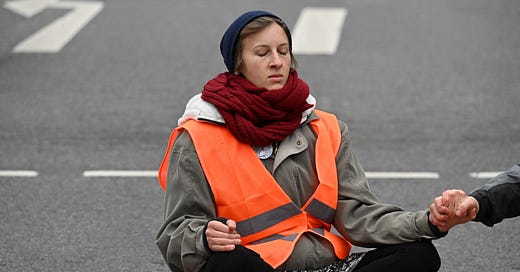








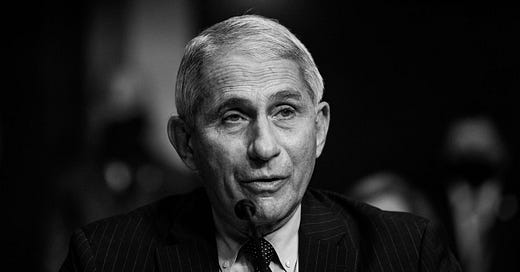

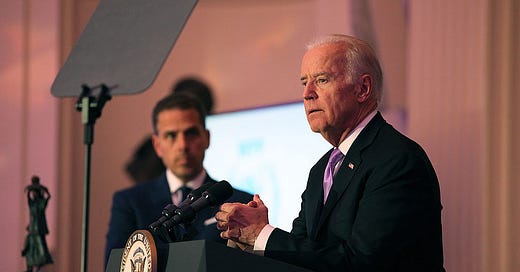

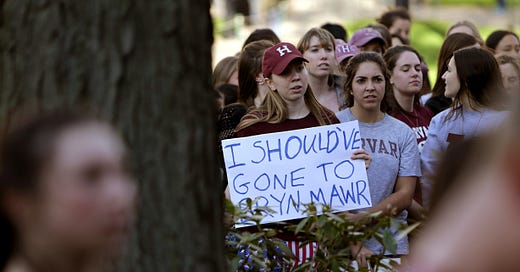

I think there are 2 more common causes here of the Social Justice "Libertarians at lunch, authoritarians at dinner" schizo mindset:
First, like their Marxist ancestors, whatever seems good for "the Revolution" at any point in time is ipso facto right and necessary, even if it contradicts what was said the day before. So if turning Cali into an open-air mental asylum gains them more power it's good, and if becoming Covid commissars gains them more power, that's also good. ("In our society whatever serves the interests of communism is moral." Brezhnev)
And secondly, the commonality between being a junkie-enabling libertarian and a Covid-enforcing maximalist is the Social Justice prime emotional impetus: a sort of fundamentalist compassion, where anyone who may cause any harm to any member of a marginalized group becomes not just an enemy or dissident, but a pollutant that needs to be extinguished.
Social Justice is somehow both Marxist and Protestant, and combines the most extreme thinking of both, in that every aspect of life and the world become both intensely politicized and moralized.
Have been reading some Rene Girard lately and he talks about how Christianity died so that its essence/ethos/core truth could live forever.
"The current process of spiritual demagoguery and rhetorical overkill has transformed the concern for victims into a totalitarian command and a permanent inquisition."
Great piece!
I'm of Mark Fisher's 'Capitalist Realism' school of Marxism--the left and right have both become tinged by anti-rational pseudo-religiosity because no one can think of any real alternative to the demonic Mega-Capitalism that is swallowing us all whole. When there is no place in the world that truly escapes the Beast, the conclusion must be drawn that capitalism is apolitical and transhuman, an autonomous AI that follows only its own endless-growth (il) logic. It's not surprising that people are, for lack of a better phrase, going mad. Mark Fisher's book ends inconclusively, and he committed suicide--seems he couldn't think of a solution either. The only one I've found is that contained in the Book of Revelations.